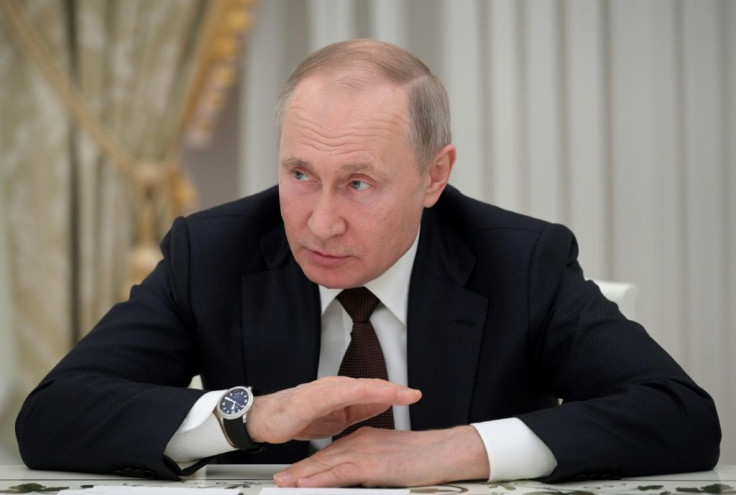Putin Is President For Life? Russian Leader Supports Amendment Allowing Him To Stay In Power Past 2024

KEY POINTS
- Putin has thrown his support behind a constitutional amendment which will allow him to stay in power beyond the end of his current term in 2024
- Putin has said that the amendment must be approved by the constitutional court and that citizens would vote on the issue in a public referendum next month
- Putin, a former KGB agent, has served as either Russia's President or Prime Minister since 1999 and has presided over major changes to Russia's economy and foreign policy
Russian President Vladimir Putin has thrown his support behind a constitutional amendment which will allow him to stay in power beyond the end of his current term in 2024. The amendment was put forward Tuesday by Valentina Tereshkova, a Member of Parliament and former cosmonaut.
“In principle, this option would be possible, but on one condition – if the constitutional court gives an official ruling that such an amendment would not contradict the principles and main provisions of the constitution,” Putin said in response to the proposed amendment.
A ruling by the constitutional court would likely be in favor of Putin. He also said that the move to extend term limits would be voted on in a public referendum next month.
Putin, a former KGB agent, has served as the President of Russia since 2012, with presidential terms in Russia lasting six years. The Russian constitution bars presidents from serving more than two sequential terms, meaning Putin would have to step down in 2024.
Putin, 67, first assumed power in December 1999, after the unexpected resignation of Boris Yeltsin. Putin then became the Acting President of Russia but won snap elections and began his first official presidential term on May 7, 2000. Putin also served a term as Prime Minister from 2008 to 2012, while holding a strong influence over President Dmitri Medvedev. Many analysts viewed Putin as the de facto leader of Russia during that time.
During Putin’s more than 20 year reign as Russia’s leader, the country’s economy has seen growth, as Russia made deals to sell oil and gas to nations such as China and Japan. The standard of living also increased for many Russians during the early years of the Putin Era.
He has faced condemnation from world leaders for his military policies. Putin seized victory from Chechen separatists in 2000 and occupied the Abkhazia and South Ossetia territories of Georgia in 2008, resulting in a frozen conflict. In March 2014, Russia illegally annexed the Crimean peninsula from Ukraine and intervened in Syria on behalf of the Assad regime against rebel groups in September 2015. The intervention in Ukraine was met with international sanctions and the EU announced in December the extension of sanctions until the end of July.
Putin has been criticized for human rights abuses, with his government intimidating anti-Kremlin figures and outlawing demonstrations from LGBT groups.
Corruption has also been a major issue. Russia experts such as Karen Dawisha have claimed that 110 individuals control 35% of Russia’s wealth, with many of them tied to Putin. A New York Times op-ed in December 2013 asserted that Russia's oligarchy is "alive and well."
Some political analysts have described Putin’s Russia as an anti-democratic counterintelligence state with broad police powers. In March 2019, Special Counsel Robert Mueller's investigation concluded that Russian interference in the 2016 U.S. presidential election was "sweeping and systematic," while Putin denied that Russia meddled in the election.
© Copyright IBTimes 2024. All rights reserved.




















